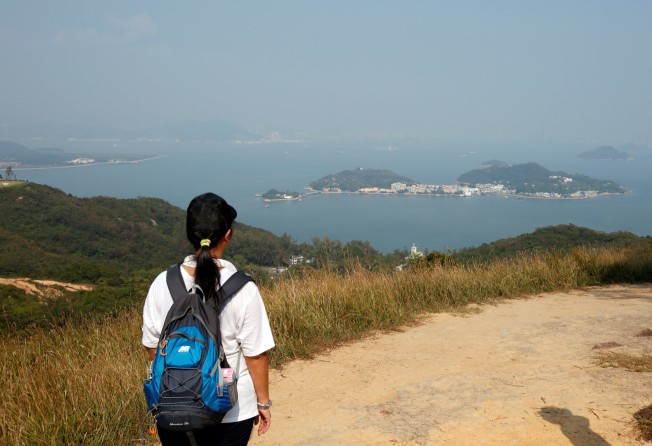Hong Kong environmentalists warn proposals to boost land supply could cause ‘irreversible’ damage
- Twelve environmental groups say proposals ‘scapegoat’ public hearings to hide administrative delays
- Changes would reduce public consultations at Town Planning Board, limit participation of residents in planning city’s development

Hong Kong conservationist groups have urged authorities to withdraw several proposed amendments to land-use regulations, warning it would limit public participation and cause “irreversible” damage to the local environment.
The package of six amendments would enable the government to reduce the number of public consultations at the Town Planning Board from at least two to one, as well as allowing land reclamation projects to begin without funding approval.
Featured in Chief Executive Carrie Lam Cheng Yuet-ngor’s policy address last October to expedite the city’s land supply, the proposals are scheduled to be discussed by the Legislative Council’s development panel on Tuesday.
A total of 12 environmental groups, including Greenpeace Hong Kong and Save Lantau Alliance, raised concerns on Monday that the move would provide authorities with leeway to launch the controversial Lantau Tomorrow Vision project a year early, without being required to draft a detailed land-use plan for the reclaimed sites.
The project, which was proposed by Lam in her 2018 policy address, would create 1,000 hectares of man-made islands to the east of Hong Kong Island to act as a new housing and business hub. However, critics have said the scheme could drain the city’s fiscal reserves, with the plan estimated to cost more than HK$600 billion (US$76.67 billion).
But the alliance said reclaimed lands for new projects could become brownfield sites, referring to developed areas that had become disused or abandoned.
The activists cited the example of the 35 hectares of land near the Kwai Tsing Container Terminals, built as part of the HK$12 billion West Kowloon Reclamation project, which was left idle to become car parks and container yards after its completion in the 1990s.
The wasted area accounted for about one-tenth of the land mass used in the entire 340-hectare project.
“Once a land plot is reclaimed, there is no going back,” said Andy Chu Kong, a campaigner for Greenpeace in Hong Kong.
“The current government is proposing the Lantau Tomorrow Vision project, so we are very worried about what is going to happen … because it would cost way more,” he added.
The alliance also blamed the government for using public hearings as a “scapegoat” to hide the administrative delays affecting the creation of public housing estates in response to the current shortage.
According to the alliance’s study of 24 projects, or 48 green belt zones, public involvement only contributed to an average of 7 per cent of the entire land-repurposing process.
In one case, the government took more than four years to approve the construction of two residential sites on a green belt zone located near the Ma On Shan Country Park, the activists said, while public involvement only accounted for 108 days.
Under the current regulations, a land plot can only be repurposed after a two-month publication of a new draft zoning plan and a three-week issuance of public representations for comments to the Town Planning Board. Extra time is also given if any amendments are proposed.
But changes to legislation could condense multiple rounds of public hearings into one session focused on “key matters”, further compressing the entire town-planning process from at least 17 months to nine, the Development Bureau said.
Only individuals invited by the Town Planning Board would be eligible to speak at the revamped session, with officials saying this would help prevent people “abusing” the process and repeating similar views.
But environmental groups argued that the time required by authorities to garner public views by the existing legislation was already the “basic minimum”.
The alliance also suggested the government should withdraw the amendments and launch an exhaustive public consultation for each bill before tabling them individually at Legco.
“There is a designated amount of time for each procedure to go through,” said Woo Ming-chuan, deputy director of the Hong Kong Bird Watching Society. “It should be maintained and not be cut down.”